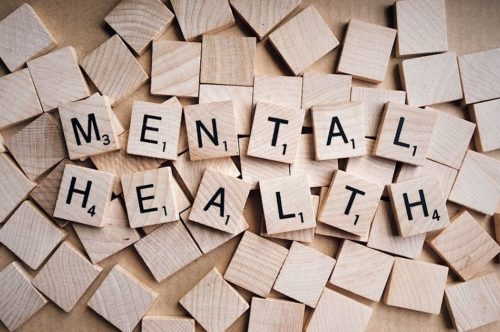 Mental health education will be integrated into health and physical education classes for all K-12 students in New Jersey under legislation signed into law Friday by Governor Phil Murphy.
Mental health education will be integrated into health and physical education classes for all K-12 students in New Jersey under legislation signed into law Friday by Governor Phil Murphy.
“It’s incredibly important that students understand the many dimensions of health, from exercise to mental health and wellness,” said Assemblyman Gary Schaer (D-Bergen, Passaic), a prime sponsor of the law. “Educating children about these issues from a young age will help them gain a deeper understanding of how to care for their mental health as they get older.”
The law (formerly A-4446/4592) sponsored by Schaer and Assembly Democrats John McKeon, Joann Downey, Raj Mukherji and Daniel Benson requires health education programs in New Jersey schools to include age-appropriate instruction on mental health, including information on substance abuse.
“One in five children ages 13 to 18 have, or will have, a serious mental illness in their lives,” said McKeon (D-Essex, Morris). “In any given classroom, there’s bound to be students living with a mental health issue, from ADHD to depression to anxiety. Some may not have been diagnosed or treated. Through lessons on mental health, we may help some youth feel less alone or be encouraged to seek the help they need.”
Under the law, the State Board of Education will review and update the New Jersey Student Learning Standards in Comprehensive Health and Physical Education. In its review, the State board will consult with mental health experts including, but not limited to, representatives from the Division of Mental Health and Addiction Services in the Department of Human Services. In consultation with experts, the curriculum will be updated to incorporate mental health instruction for students K-12.
“Mental health conditions are much more common than many people realize, yet there continues to be a stigma around it,” said Downey (D-Monmouth). “Hopefully by raising awareness for mental health issues in a classroom setting, we can reduce the stigma and instill greater empathy for generations to come.”
“People struggling with their mental health face unique challenges every day,” said Mukherji (D-Hudson). “Not only will adequate education help students with and without mental health conditions better understand those challenges, but teachers may find ways to connect with students with mental health diagnoses on a deeper level.”
“As rates of teen suicide and addiction continue to rise, we need to find ways to engage youth about these issues, beginning with comprehensive lessons in schools,” said Benson (D-Mercer, Middlesex). “Students will learn how to recognize the signs of mental illness and where they can go for help. These tools may be incredibly important if they find themselves struggling or see a friend who needs help.”
The law will take effect immediately and first apply to the 2020-2021 school year. It passed Assembly in June by a vote of 74-0, and the Senate in March 34-0.

I would like to know who these experts are. What are their values and perspective of behaviors the Torah finds unacceptable? Is this another “normal” we must accept because if we don’t, we’re the ones who have a problem?
Teacher to student: “I’m sorry, but you failed Mental Health class. Please get some help, and come back next year and retake the course.” Student to teacher: “Will you be teaching the course again next year?” Teacher: “No. I had so many students failing this course, that they refused to let me teach this class again, despite the fact that I’m the only normal person in the classroom, and in the entire school, for that matter!” Student: “I’m sorry to hear you won’t be teaching this course again. Is there anything I can do to make you feel better?” Teacher: “Yes, can you help me put on my jacket?” Student: “Which jacket?” Teacher: “The straight jacket over there in the closet.”